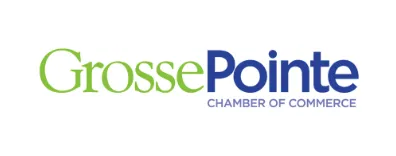Empower Your Brand,
Elevate Your Impact, and
Unleash the Power of Your Expertise.
Experience. Excellence. Expertise.
Synaptic is a full-service Marketing and PR agency that connects strategy to execution—transforming ideas into impact.
In the human body, synapses transmit signals from the brain, enabling action. In business, we serve the same role—bridging the gap between vision and execution. By integrating seamlessly with existing teams and systems, we create the pathways that drive brand growth, amplify messaging, and navigate challenges with clarity and purpose.
Whether building momentum or managing a crisis, Synaptic ensures businesses don’t just react—they respond with precision, strategy, and strength.
Public Relations & Media Training
In an era where generative AI is reshaping communication and introducing unique challenges and opportunities in the management of public perception, it is more crucial than ever to partner with skilled PR professionals. We help clients showcase their subject matter expertise in navigate this evolving landscape while maintaining the human touch that truly connects with the audience.
Events
Hosting a tradeshow? Does your local business want to host a six-figure sales day? Dreaming of an executive retreat?
Time and again, our special events exceed our clients' expectations and we can do the same for you!
Traditional Advertising
We work with clients who swear by their tried-and-true, especially when we help them blend it with newer digital technology. Together, we can find an approach that works for your unique business.
Websites, SEO, and Search
The days of relying on outsiders for simple organic fixes to your website and its visibility are over. We empower our clients to take ownership of their online presence with websites that simply work.
Crisis Communications
and Reputation Management
Many small and mid-sized businesses assume PR crises are only a problem for major corporations. But the truth is, big brands have the resources and recognition to recover from reputation damage—small businesses don’t always get that second chance. A viral complaint, bad press, or social media backlash can be ruinous if a business isn’t prepared. PR Shield levels the playing field, giving SMBs the same crisis communication expertise that major corporations rely on, so they can protect their reputation and their future.
Social Media
There are plenty of experts offering hacks and workarounds designed to chase the algorithms. We prefer using social media as a consistently-applied tactic that we can manage in tandem with your on-site team to create a storytelling tool for your brand.
Frequently Asked Questions
What kind of work do you do?
We blend strategic consultation with done-for-you execution.
A few important things make us different from so many other marketing providers.
First, we are uniquely positioned to help clients build trust, relevance, and authority through professional PR and Community Relations.
Next, we focus on connecting your people and systems to marketing because tactics can't be successful unless they're seamlessly integrated into the work your team does every day.
We are proud of our team's experience, credentials, and expertise. You deserve better than paying for anyone's learning curve.
What types of clients do you work with?
Our clients are a LOT like us.
They are the best in their field.
They have big visions and are never satisfied.
They don't take chances with their brands.
They care deeply about their reputations and obsessively over-deliver.
They’re picky. They trust our advice because they know our recommendations are based on dozens of successful relationships with business leaders just like them.
What's it like to work with you?
Our client relationships are based on proactive communication, accountability, and collaboration.
It’s simple: We meet with clients to examine their business goals, discuss what’s working, and identify opportunities.
We set goals, identify roles, and spend time working to ensure that everything goes well and to plan what will happen if things go wrong.
Then, we get to work.
What Our Clients Say
Real feedback from our clients!
Our Most Popular Posts
Insights, client news, and blog posts
You’ve built the brand.
Now, let’s build the legacy.

Empower Your Brand,
Elevate Your Impact, and
Unleash the Power of Your Expertise.
Follow us:
© 2026 Synaptic, LLC - All Rights Reserved.
Privacy Policy | Terms and Conditions



















